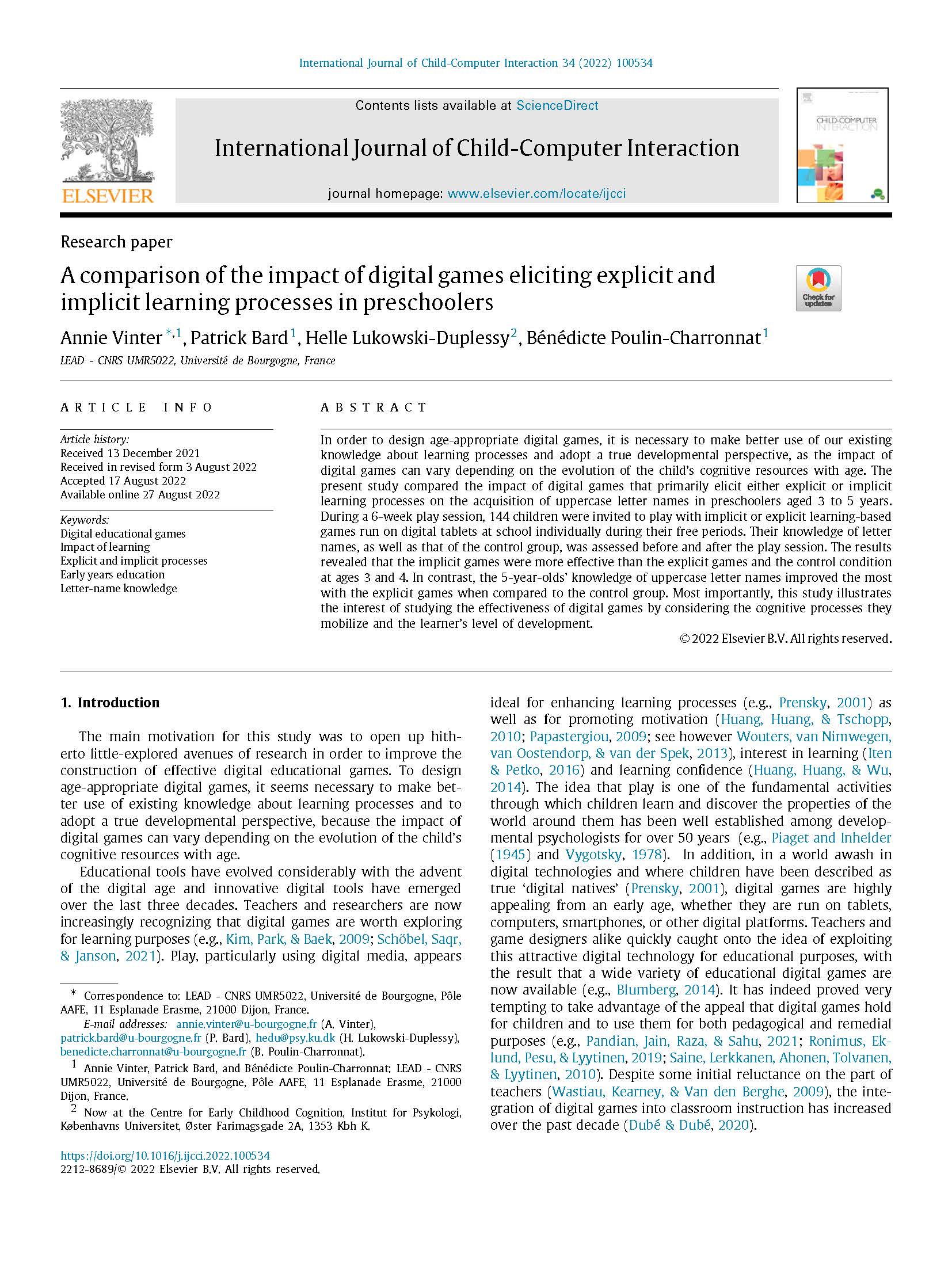In order to design age-appropriate digital games, it is necessary to make better use of our existing
knowledge about learning processes and adopt a true developmental perspective, as the impact of
digital games can vary depending on the evolution of the child’s cognitive resources with age. The
present study compared the impact of digital games that primarily elicit either explicit or implicit
learning processes on the acquisition of uppercase letter names in preschoolers aged 3 to 5 years.
During a 6-week play session, 144 children were invited to play with implicit or explicit learning-based
games run on digital tablets at school individually during their free periods. Their knowledge of letter
names, as well as that of the control group, was assessed before and after the play session. The results
revealed that the implicit games were more effective than the explicit games and the control condition
at ages 3 and 4. In contrast, the 5-year-olds’ knowledge of uppercase letter names improved the most
with the explicit games when compared to the control group. Most importantly, this study illustrates
the interest of studying the effectiveness of digital games by considering the cognitive processes they
mobilize and the learner’s level of development.
A comparison of the impact of digital games eliciting explicit and implicit learning processes in preschoolers
